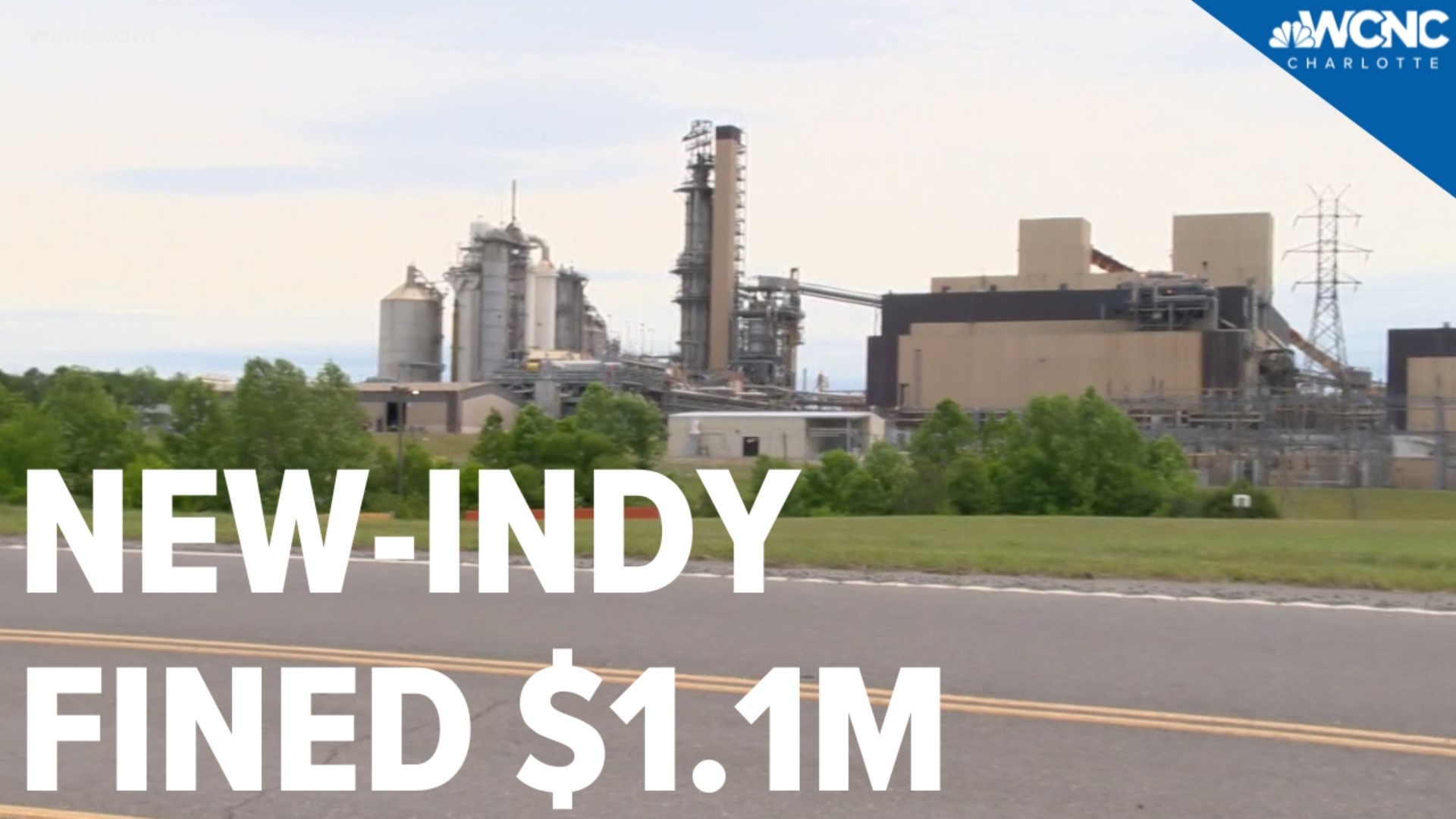CATAWBA, S.C. — After years of complaints, the ongoing issue of a prevalent rotten egg smell hanging over Catawba, South Carolina may be drawing to a close.
On Wednesday, a new ruling by the U.S. District Court for the District of South Carolina declared New-Indy Containerboard Catawba's paper and pulp factory must comply with the Clean Air Act and stop emitting elevated levels of hydrogen sulfide.
H2S is a colorless, flammable gas that smells like rotten eggs and can cause irritation to people's faces and throats. Some people, especially those who suffer from asthma, may experience difficulty breathing.
The allegations stemmed from an unavoidable stench of rotten eggs near the plant for years which eventually elevated to the United States Environmental Protection Agency bringing forth a formal complaint against the factory under Section 303 of the Clean Air Act. Section 303 is invoked when there is evidence of the source of pollution that is "presenting an imminent and substantial endangerment to public health or welfare, or the environment." A lawsuit under Section 303 is used to restrain any entity from contributing to or causing pollution.
INTERACTIVE TIMELINE: New-Indy Containerboard investigation
This Wednesday's consent decree orders New-Indy to pay $1.1 million in civil penalties and requires that it comply with emission monitoring and operational requirements of its H2S emission concentration levels to ensure they remain below levels that could impact people's health.
“This is a substantial penalty that represents accountability and corrective justice under Section 303 of the Clean Air Act,” U.S. Attorney for the District of South Carolina Adair F. Boroughs said. “We are thankful for the great work of the EPA and our state partners and remain committed to protecting our communities through tough enforcement of the nation’s environmental laws.”
However, the co-lead class counsel in the New-Indy emissions litigation does not go far enough. A statement sent to WCNC Charlotte reads:
“This agreement is just the latest example of the EPA’s failure to put an end to New-Indy’s dangerous emissions or hold them fully accountable. Unfortunately for the thousands of people who continue to be exposed to New-Indy’s egregious pollution, this sweetheart deal will not solve the problem or force the company to come into compliance with state and federal regulations. Our position has always been that the EPA’s proposed consent decree and minor fine are inadequate for what New-Indy has levied upon this community, which is why we sought to intervene in that litigation on behalf of our clients in September 2021. Through the recently filed Clean Air Act citizen suit, forthcoming Clean Water Act citizen suit, pending class action lawsuit, and any other means necessary, we will continue to fight for an end to this environmental disaster and real accountability from New-Indy.”
This consent decree will remain in effect for three years if New-Indy is found compliant in all three of those sequential years. If New-Indy doesn't comply with the new consent decree, it could face additional penalties.
“This settlement provides significant environmental benefits to the surrounding communities by ensuring they are protected from pollution from this facility through mandatory long-term improvements designed to ensure cleaner air,” Larry Starfield, Acting Assistant Administrator for EPA’s Office of Enforcement and Compliance Assurance, said.
Due to the EPA's action, EPA Region 4 Administrator Daniel Blackman said the New-Indy facility hasn't exceeded H2S emissions since September 2021, when the EPA first brought its suit.

